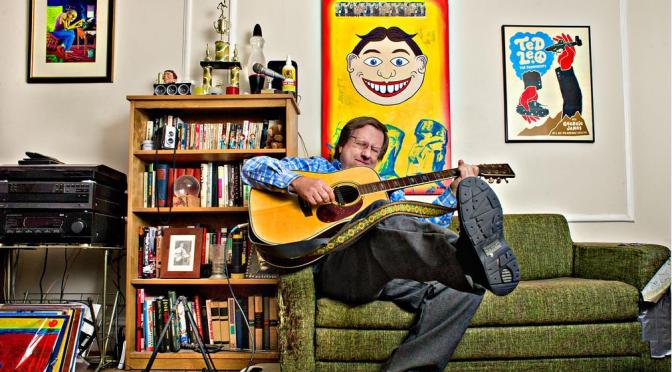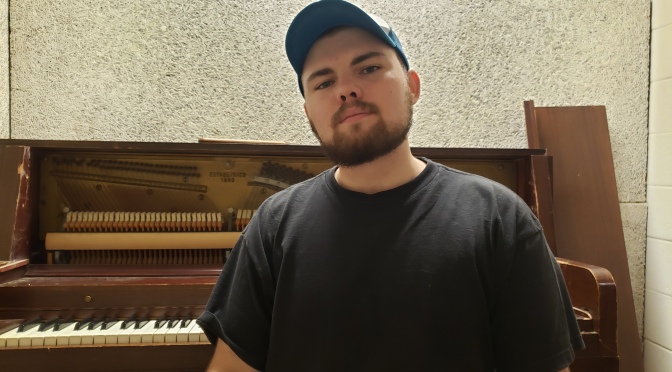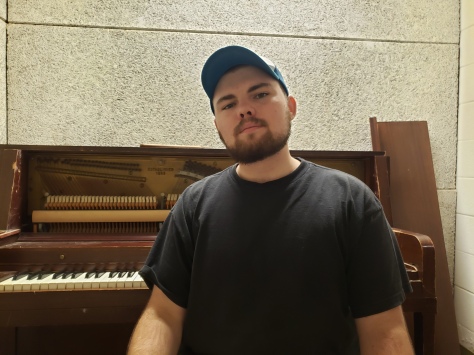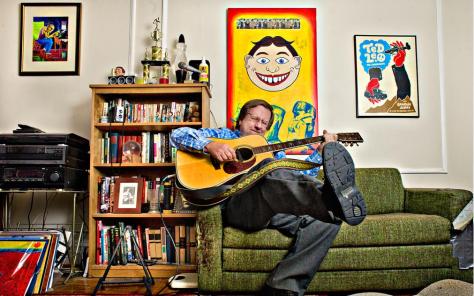
Recently, I had the pleasure of chatting with influential New Jersey music writer Jim Testa. Testa is the creator and editor of Jersey Beat, a Weehawken based music publication that covers music of all genres and demographics from around New Jersey. He also writes a music column for the Jersey Journal, covering the Hudson County music scene.
Testa attended Rutgers-New Brunswick, where he was thoroughly involved with The Daily Targum, the college’s daily newspaper. “Junior into senior year, I was responsible for getting the whole paper out. From writing it, to layout, to production and everything else. So, I learned an awful lot doing that, which came in very handy later,” he explained.
After graduating, he covered theater and film as a freelance writer, before becoming “fascinated” by the punk scene, switching gears to music, and writing for his friend’s fanzine down in Washington D.C.
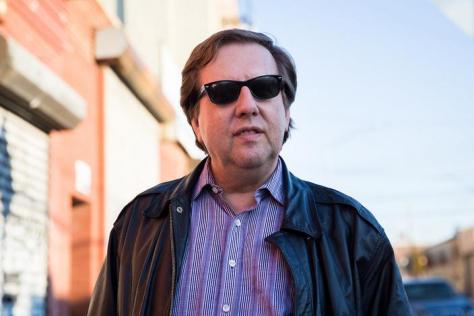
“My column in his fanzine was called ‘Jersey Beat’, which was a pun on ‘Mersey Beat‘. This was the early 80’s. A lot of people were starting print fanzines. I decided to start one, so I started doing ‘Jersey Beat’. This was 1982.”
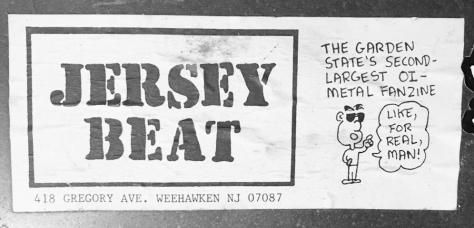
Jersey Beat was a print publication for 25 years, moving online in 2007, which spawned a podcast as well, consisting of both interviews and playlists of new music Testa is enjoying.
The switch to online came with many benefits, but one downfall, as Testa explains. “You reach more people online. It’s way cheaper online, but there’s something about the satisfaction of getting something in print and holding it in your hands. If you don’t know it, it’s hard to describe, but it was definitely a real thing.” At it’s peak, the zine was nearly 130 pages an issue. Print and postage became a hefty burden, slowing publication from every two months to every six months. Being online also allowed for higher fidelity media, which was difficult to achieve in the zine’s early days.
Becoming accustomed to new technology wasn’t an issue either. Testa worked a “back office” day job in insurance while writing the zine. He got to learn every new piece of technology his employers acquired, which he quickly put to use on Jersey Beat.

I asked Testa about some of the stories and moments he was most fond of, and he didn’t seem to have a shortage of them. From getting involved with Hoboken’s music scene, spending time at Maxwell’s, witnessing a fight between a hardcore band and some Hell’s Angels and a run in with some punk legends early in his career.
“I was just hanging around the office, and the phone rang. I picked it up, and it was Danny Fields, who was the manager of The Ramones… He said ‘Would anyone from your newspaper like to come into the city and check out this band that I’m managing. That’s just how he put it… but reading the Village Voice, I knew it was The Ramones.” Testa went to the legendary CBGB and sat in a pew right in the front of the stage as The Ramones played their first set. “It was the loudest, craziest thing I’ve ever seen in my life. I loved it immediately”. In between sets, he interviewed Johnny and Joey Ramone, before returning to his seat. “Danny came over and said ‘I need you guys to squish over ’cause I need you to share this pew with some other people’. So, we squished over and Patti Smith came in with her date, who was Bryan Ferry, and they sat next to us.That was pretty cool, sitting there with her watching The Ramones”.
Near the end of our chat, I asked Testa if he had any advice for writers who were interested in covering local music, and he was eager to provide some.
“If you want to write about music, you don’t have to start at Pitchfork. There are lots of people like me, who run blogs and music websites, who, if you reach out, would be happy to publish you. You just have to have the initiative to do it, or, you can go online to Wix or something and start your own blog. It doesn’t even cost a dime… Let people know you’re there, share your stuff, you know, there’s plenty of social media. If you go out, buy a record and review it, go online, find the record label or the band, and send them a copy of the review. Say ‘Hey look, I’m doing this. Could you send me something else to write about?’ You’d be surprised at the response you could get”. He also stressed the importance of being able to share your opinions and not “feel like a jerk”.
He also said that his inbox is always open to music writers. “If you have the bug and think “Oh, I love writing reviews,’ or ‘I’d like to interview this band in my town,’ you can contact me or you can contact other people online. We’re all overworked, underpaid and looking for help. So, there are definitely opportunities out there that people don’t take advantage of.”
Testa compared music journalism to actually playing music, calling it “difficult” and “mostly thankless”, but said that “nothing worth doing comes easy”.
Speaking with Testa gave me an extra little kick to keep doing what I’m doing. I admit, it can be frustrating, but it can also be a blast and I hope somebody reading might feel “the bug” and get involved themselves.

